Hello everyone and welcome to a Friday Product Post that we've been working on for awhile now. This week we are proud to announce the next wave of EMG sensors. Say hello to MyoWare 2.0! MyoWare has redesigned their muscle sensor from the ground up with a new easy-to-use design and upgraded it with the latest and greatest chipset, which improves sensor performance and reliability. From robots to video games, MyoWare Muscle Sensors are used to control a wide array of devices using the electric potential of your own muscles. You're definitely going to want to watch this week's video, too. Rob has really outdone himself!
MyoWare 2.0 makes EMG and biometrics easy!
Using our muscles to control things is the way that most of us are accustomed to doing it. We push buttons, pull levers, move joysticks... but what if we could take the buttons, levers and joysticks out of the equation and control it with our muscles? The MyoWare® 2.0 Muscle Sensor is an Arduino-compatible, all-in-one electromyography (EMG) sensor from Advancer Technologies that allows you to do just that! As stated, the MyoWare 2.0 Muscle Sensor has been redesigned from the ground up with a new easy-to-use, compact design and upgraded with the latest and greatest chipset improving sensor performance and reliability. The innovative snap connector system eliminates the need to solder connections for the MyoWare 2.0 ecosystem. It's that easy: stick on a few electrodes (not included), read the output voltage and flex some muscles!
The MyoWare 2.0 Muscle Sensor measures muscle activity through the electric potential of the muscle, commonly referred to as surface electromyography (EMG or sEMG for short). When your brain tells your muscle to flex, it sends an electrical signal to your muscle to start recruiting motor units (the bundles of muscle fibers that generate the force behind your muscles). Science.
The MyoWare 2.0 Arduino Shield is designed to easily connect up to six MyoWare 2.0 Muscle Sensors and Link Shields using 3.5mm TRS-to-TRS audio cables. The board comes prepopulated with male headers, so all you need to do is stack it on your Arduino and connect the sensors to read up to six muscle groups! The Arduino shield form-factor mates directly with development boards that have the Arduino Uno R3 standard footprint. All six analog input pins (A0-A5) on the Arduino are reserved on this shield.
The MyoWare 2.0 Power Shield is designed to easily power the MyoWare 2.0 Muscle Sensor for remote applications. The MyoWare Power Shield is equipped with snap connectors on the board so you can easily stack it to the top side of the MyoWare Muscle Sensor. Flip the switch to the ON position to give the sensor all the power it needs to work its myoelectric magic.
The MyoWare 2.0 LED Shield is designed to display the magnitude of a target muscle's signal and power the MyoWare 2.0 Muscle Sensor with its built-in battery. The blue 10-segment bar graph shows the magnitude of the measured signal. The more muscle activation measured, the higher up the board LEDs will go! With this shield, you will be provided with a visual representation of the signals provided by the MyoWare 2.0 Muscle Sensor. The LED shield is also equipped with snap connectors on the board so you can easily stack it on the top side of the MyoWare 2.0 Muscle Sensor.
The MyoWare 2.0 Link Shield is designed to easily connect a MyoWare 2.0 Muscle Sensor to your Arduino microcontroller. The shield provides a 3.5mm TRS jack so that you can use a 3.5mm TRS-to-TRS cable to link the boards together. Like the others, the MyoWare 2.0 Link Shield is equipped with snap connectors on the board so you can easily stack it to the top side of the MyoWare 2.0 Muscle Sensor.
The MyoWare 2.0 Muscle Sensor is designed to be wearable, allowing you to attach biomedical sensor pads directly to the board itself. However, there still may be cases where you want to mount the sensor pads away from the board; this is where the MyoWare 2.0 Cable Shield comes in. The shield includes a 3.5mm TRS jack where you can attach a traditional three electrode sensor cable, allowing you to test and use the muscle sensor without actually attaching the board to your person.
The MyoWare 2.0 Reference Cable is meant as an extension for the MyoWare 2.0 Muscle Sensor's reference pin. You will just need to insert the pin into its housing and place a biomedical sensor pad into the electrode snap. When ready, stick the reference cable's snap pin to a separate section of the body such as a bony portion of the elbow or a nonadjacent muscle near a targeted muscle where the MyoWare 2.0 Muscle Sensor's built-in reference pin is unable to reach.
Note: MyoWare and the Arduino Shield are not intended for use in the diagnosis of disease or other conditions, or in the cure, mitigation treatment, or prevention of disease, in a man or other animals.
That's it for this week. As always, we can't wait to see what you make. Shoot us a tweet @sparkfun, or let us know on Instagram, Facebook or LinkedIn. Please be safe out there, be kind to one another, and we'll see you next week with even more new products!
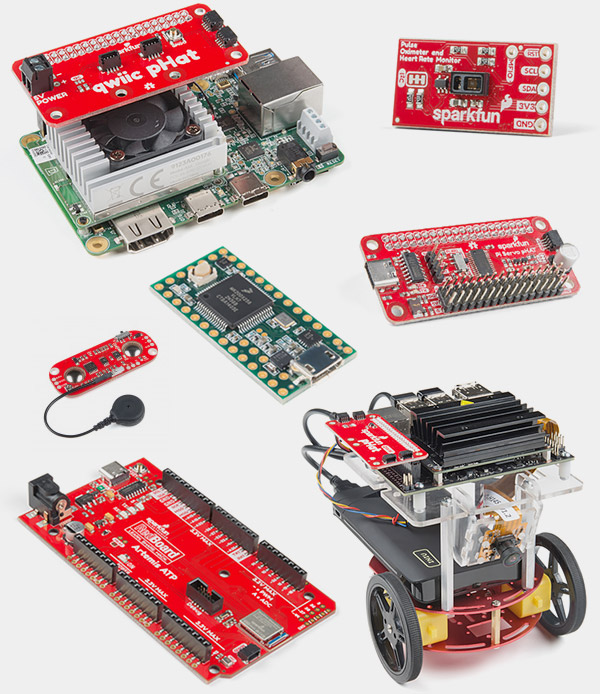
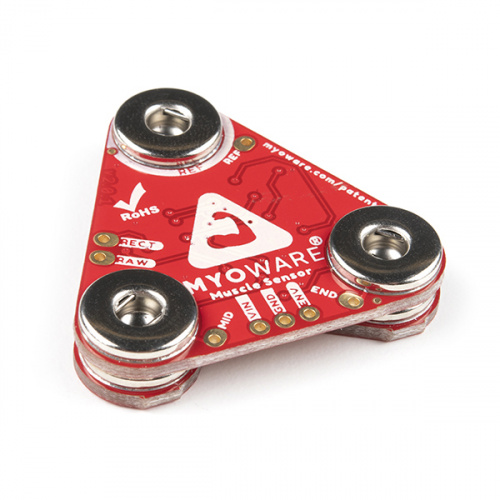
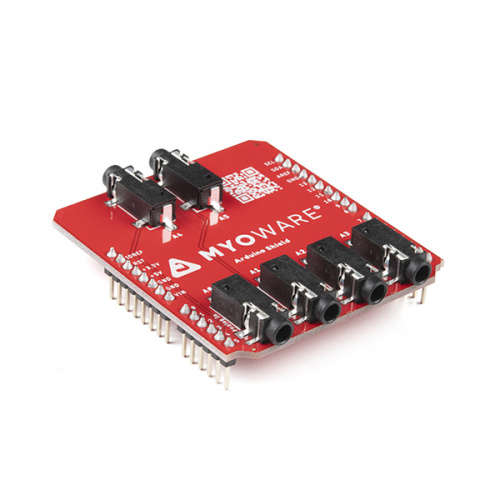
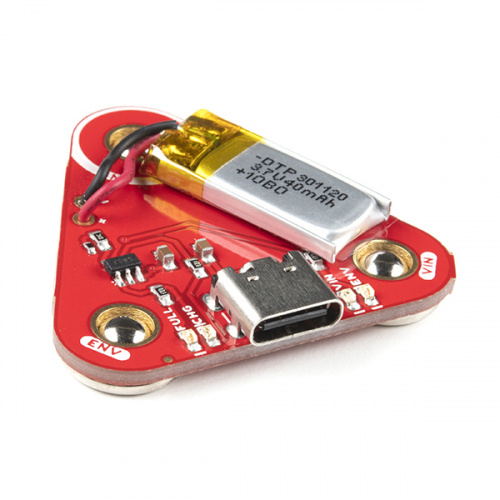
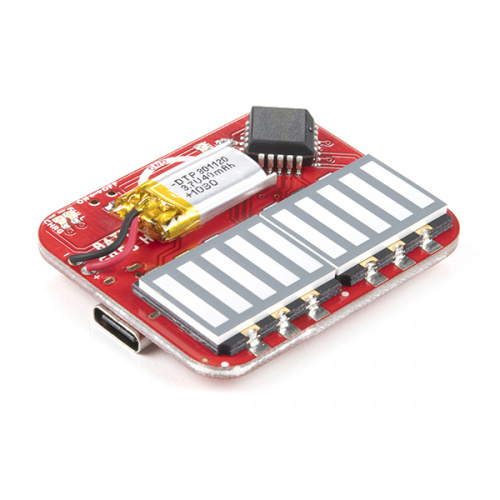
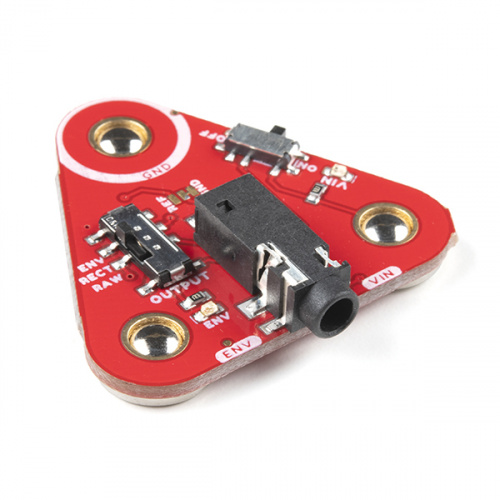
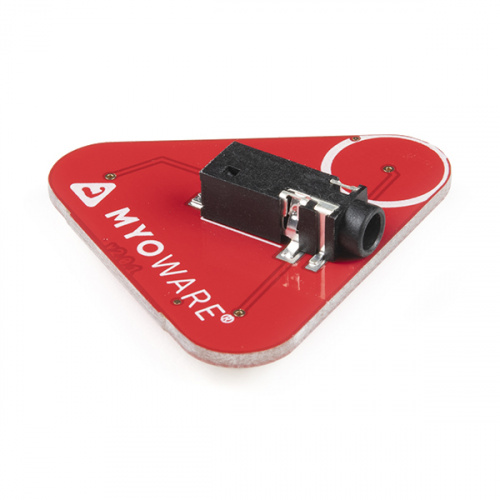
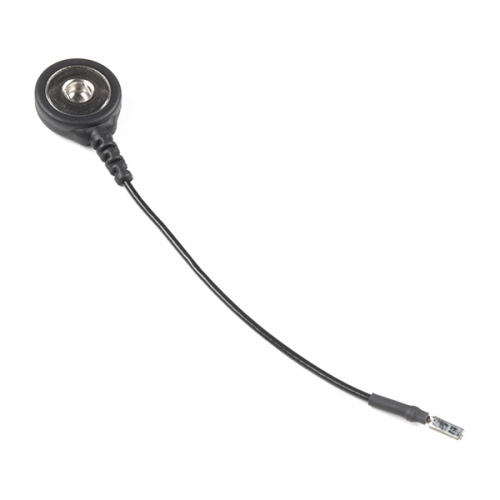

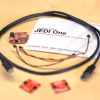
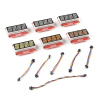





There's also the 3.5mm TRS-to-TRS cables that were released. ;)
While Rob was doing his montage, the thought occurred to me that at least he hasn't discovered CGI... ;-)